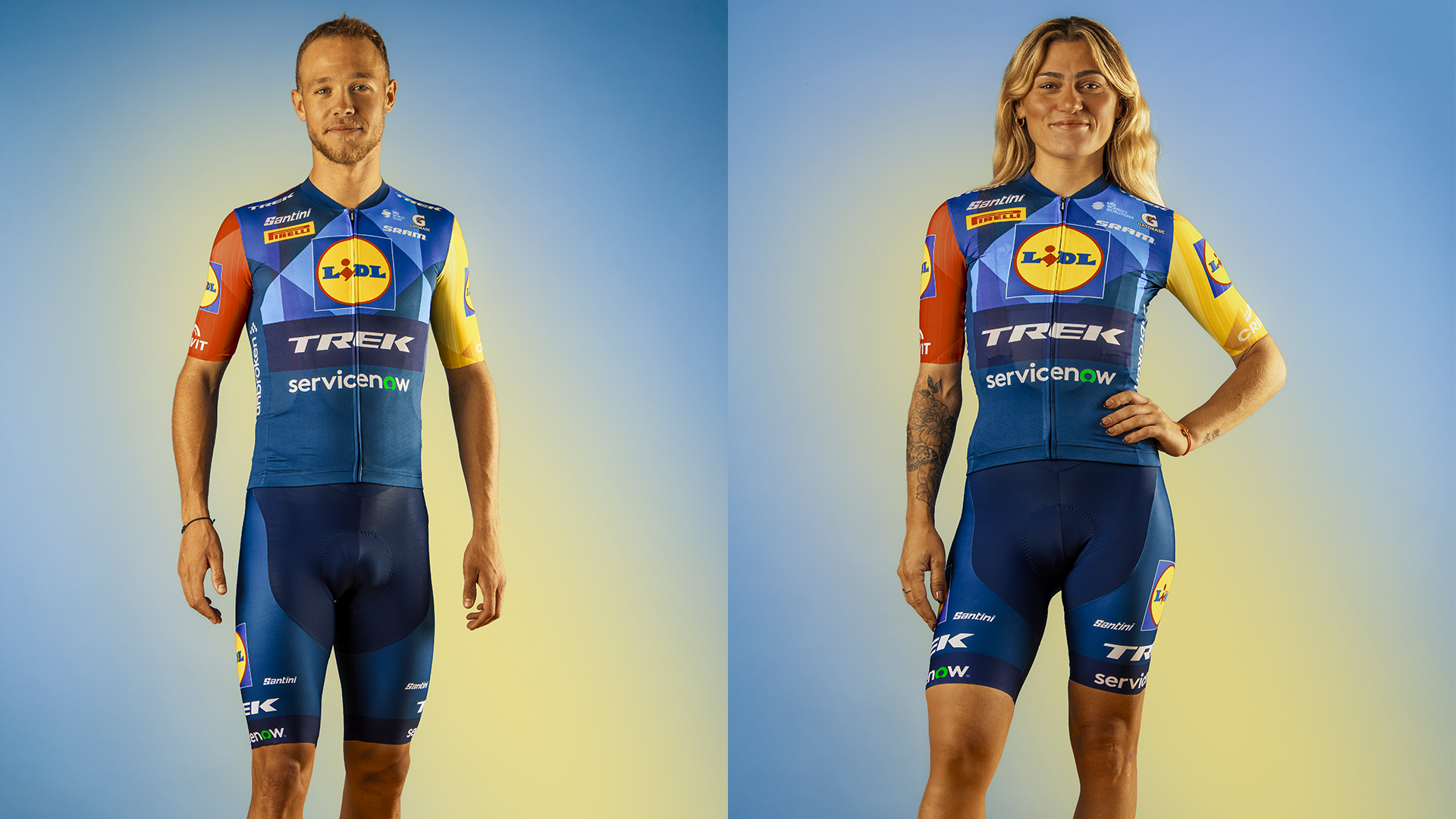Floyd Landis on riding, racing again and creating a gravel team
'I finally got to a place where I can ride my bike and not feel awkward or guilty'
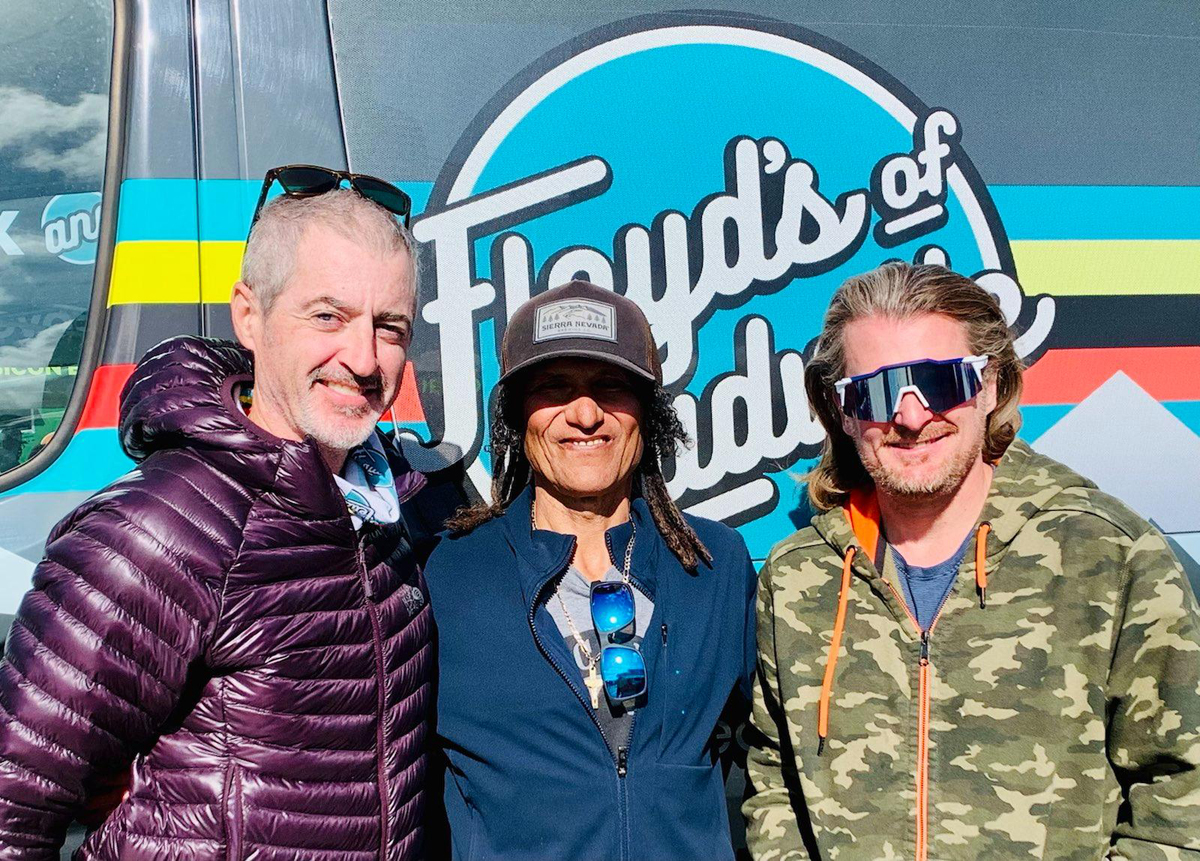
It’s a decade and a half since Floyd Landis wore yellow to Paris and then things fell apart. There has been a lot of controversy and stress since his positive test but, 15 years on, he’s back on his bike, putting together a gravel racing team and giving some second chances.
Floyd Landis appears to be in a good place. He’s back on his bike, he’s fitter than he’s been in years and he’s contemplating a (not entirely serious) return to competition.
The former professional is backing a new team which was announced this week. Titled Floyd’s of Leadville Racing, it will feature five riders including multiple MTB world champion Tinker Juarez and others, and will target a programme of gravel and mountain bike races across North America.
Landis and fellow ex-pro Dave Zabriskie will be guest racers at a number of events in 2022. Given Landis’ difficult experiences with the sport, that may be a surprise to some.
“In the last few years, I finally started to get that old enjoyment back,” he tells Cyclingnews, speaking by phone about the project. “I’m on my bike, my thoughts in my head are like they were as a kid, and there’s that [good] feeling you get afterwards.
“I realized that a lot of that feeling that I enjoyed about cycling really had nothing to do with winning bike races at all. It was just the freedom of riding my bike, of thinking, of the experience of it all and the feeling you get from it. For me, it was enlightening to actually realize that I was trying so hard to win races when that wasn’t even really what I was looking for.”
Landis’ drive to win races was something that, initially at least, gave him a lot. It carried him from a quiet Mennonite upbringing in rural Pennsylvania to the biggest teams in pro cycling, to helping Lance Armstrong win the Tour de France multiple times and to winning the Tour himself in 2006.
The latest race content, interviews, features, reviews and expert buying guides, direct to your inbox!
Wearing yellow to Paris after a dramatic comeback meant that Landis was the biggest name in the sport, a quirky character feted by the world’s media. Then, days later, the bombshell happened. He was announced as positive for testosterone and was thrust into a battle to save his career.
He was disqualified, suspended, denied doping, finally admitted doping, then turned whistleblower against Armstrong. The Texan would end up being stripped of his seven Tour victories as a result of the investigation.
Landis also went through the mill, turning to drink and prescription medication to cope with the pressures of loss, anger, guilt, and ostracization.
It’s now a long 15 years since his short-lived win in the Tour. These days he’s doing a lot better. He’s living in Larchmont NY, owns a multi-state CBD business called Floyd's of Leadville and now is the confirmed backer of a new cycling project.
The team is a long way from the scale and approach of Phonak, his squad from 2006, but that’s precisely the point.
“I wanted to do something positive with it”
Landis’ first time backing a team happened three years ago. As the main whistleblower, he was awarded a share of the US Government’s $5 million settlement from Lance Armstrong, a sum estimated as being around $750,000. Rather than keeping the cash, he decided to return it to the sport, using it to sponsor a Canadian Continental outfit which had previously competed as Silber Pro Cycling.
Renamed Floyd’s Pro Cycling, it had a successful season in 2019. Its riders won the Tour de Taiwan, took second overall in the Tour de Langkawi and clocked up other strong results. The squad then abruptly stopped, having been unable to secure new funding.
“For me, I never envisioned personally having the resources to keep it going [beyond one season],” Landis explains. “And mostly that’s why I decided to support [team manager] Gord Fraser in a project that was already operating, as kind of a bridge to helping them to find a new sponsor.”
He could of course just have banked the money, but he says that wasn’t an option.
“I wanted to do something positive with it,” he says.
“It was a direct way of trying to demonstrate that what I really wanted out of the whole process of coming clean was just for people to know the whole story, not to turn on Lance and somehow have his money. I don’t care about money enough to have done it for that reason.
“But I don’t know that anyone would know that, unless I somehow showed them in a meaningful way. For me, it was a way of just saying, ‘look, this money isn’t mine. It belongs in cycling, and that’s where it should stay.’”
Notwithstanding that, he said there was ‘a very small fraction’ of people involved in the sport at the time who resented him for what he did. He describes them as twisting the motives behind his decision.
“I can’t change those people,” he says. “For me, it was just…it was for my own ability to sleep at night, knowing that I did what I could do with the decisions I’ve made.
“I felt like that was some kind of closure to the whole thing that didn’t leave me questioning my own motives, honestly.”
Version 2.0: Gravel and MTB
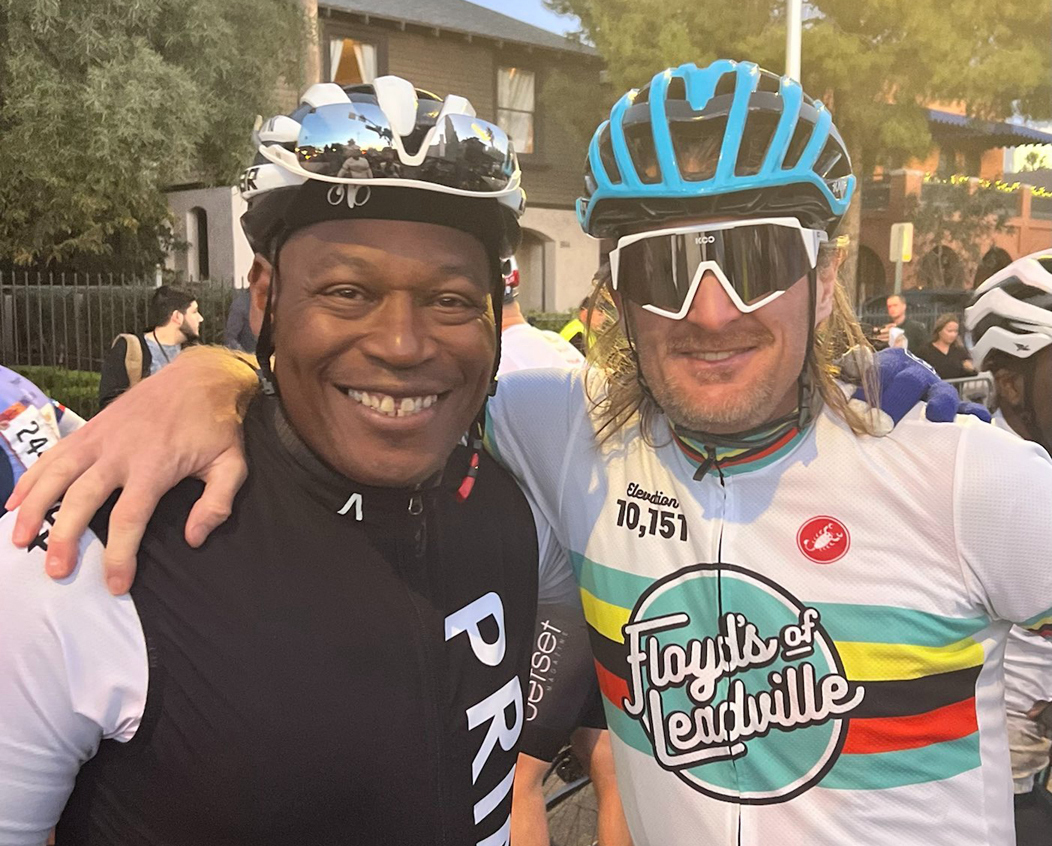
It’s now three years on from that first venture into backing a team. He is now in a similar position again, but with a very different kind of project. This time around it will be a small five-rider setup, not including occasional guest slots from himself, Zabriskie and others.
The line-up will include multiple world champion Tinker Juarez, who Landis is supporting after a much-reported split with Juarez’ longtime sponsor Cannondale. There’s also the 2021 Unbound XL Champion Taylor Lideen, Team USA U23 MTB racer Victor Cashes, masters racer Anne Donley and the Canadian Geneviève Jeanson.
So why gravel? Landis is convinced that this new wing of the sport is both fun and also fits in well with the business model of Floyd’s of Leadville, saying that the sense of community is different to road racing.
“I would compare the atmosphere and the experience of gravel races or rides to triathlon, where everyone’s kind of starting together, and where you have more of festival feeling afterwards.
“A lot of times in professional racing, you have a bunch of fans that aren’t necessarily—especially in Europe—hardcore cyclists, but they’ll go watch the race, and then it’s over. It’s a different atmosphere than when you have a couple thousand people who actually just enjoy riding their bikes, and then they hang out afterwards.
“For us, that’s a demographic that is hard to get to. And it’s a captive audience at these events, so that’s good for our marketing. So it’s a win for us on that level.”
But much as he believes there is a strong business value to the project, he also insists that he wants to give back to the sport.
“For me it’s nice to be involved in some way in cycling that has, for lack of a better way to say it, has some sort of absolution for me. And I mean this. I’m doing it because cycling gave me a lot, and also I had probably an outsized effect on cycling in ways I wish I hadn’t.”
Landis is referring back to the events of 2006 and everything that happened as a result of his positive test. It was damaging for him and others, but also for the sport itself.
“I’m not the only one that’s gone through experiences like that, but for reasons that everyone in cycling knows, it was just a bigger impact because of the way it happened,” he elaborates.
“So it’s nice for me to be involved in some way that either helps young riders that are looking for opportunities to have access to those opportunities, or helps some people who have gone through similar sort of negative experiences as a result of decisions they have made and other things in cycling and are looking for just some enjoyment out of it again.
“I feel like I finally got to a place in my life where I can ride my bike and I can be part of the community and not feel, I guess, just awkward and guilty, which is what I felt for a long time.”
“As a human being, I hope she’s gotten through it okay”
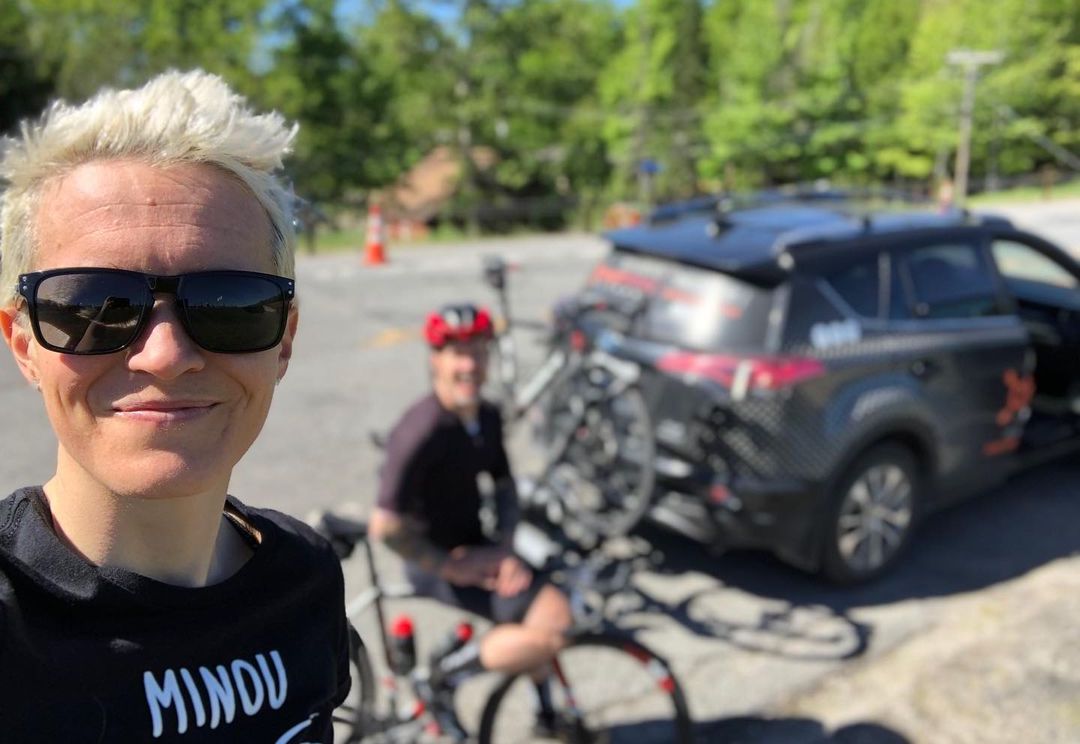
Landis is open that he was in a very dark, difficult place after 2006. It’s at least partly because of that experience that he has taken on Geneviève Jeanson.
The Canadian was extremely successful as a competitor, wining the time trial and road race at the junior world championships, taking La Flèche Wallonne at just 18 years of age and dominating events such as the Redlands Bicycle Classic and the Tour of the Gila. However, she missed the 2003 world championships in Canada due to excessive haematocrit levels and then tested positive for EPO two years later.
Jeanson was handed a two year ban and in 2007 she admitted to using the banned substance for much of her career. That led to a lifetime suspension, later reduced to ten years for cooperating in an investigation into her coach André Aubut and doctor Maurice Duquette. Both were subsequently banned for life. She later made allegations that she had been verbally and physically abused by Aubut.
Jeanson made errors of judgement during her career and suffered as a result, spending a lot of time in the wilderness; the parallels with Landis are obvious. And while she has not competed in years and although he doesn’t know her personally—“unless I’ve forgotten and crossed path with her when I was racing, I’ve never met her face to face,” he says—Landis agreed to a bike industry suggestion that she should be considered for the team.
As he explains it, she’s been through a lot and has battled hard to survive.
“Sort of around the same time I was going through the whole scandal, I watched her just trying to get through it herself,” he explains.
“All I had was the viewpoint of the press. But I also had, because of what I was going through, or had gone through, a particularly unique point of view on what might actually be happening to her psychologically in her mind, having to deal with all of it. And I’ve always felt really like…some of these things can be bad. Marco Pantani didn’t actually survive it. There’s been times when people didn’t make it through these things.
“I was worried for her because she was [he pauses]… I guess some people would judge me for saying this, but I think she was singled out in an unfair way when there was more to the story than what you would read into it, just as an observer. I hope she’s okay. Like I said, I don’t know her. I know she must be strong to have gotten through that, and to be willing to subject herself to talk about it.”
Like Landis, Jeanson is back cycling and has got to a place where she is ready to do some racing again. She may or may not challenge for results during the upcoming season; however he and team principal Will Geoghegan stress that winning isn’t a big objective for the team. Rather, they say it is of more value to them to be a visible presence at events, to engage with the gravel and MTB community, to build brand awareness while also emphasising the importance of mental health.
From that point of view, Landis feels Jeanson is a good fit.
“That [her history] is part of who she is now and she’s not going be able to escape it,” he says.
“So the fact that she’s willing to go ride her bike and has matured enough to be able to face it with a smile…I think it speaks volumes about her. And I hope that it’s a good, positive thing for her.”
Of course, he knows that there is a risk. Signing a rider with her past could be viewed as controversial. Indeed that consideration came up for discussion when her name was first suggested by a bike manufacturer who wanted to support her.
“There was obviously some concern that I would not want her to be on the team, for reasons that—obviously to me—don’t make any sense,” he explains.
“I would be more than happy to support anybody that’s turned their life around, trying to make some positive out of it. But there was a little bit of concern that, you know, I just didn’t want that sort of publicity. But far be it for me to take that position. So I’m glad it happened.
“Look, as a human being, I hope she’s gotten through it okay. You never come out of any kind of crisis in your life the same person, but if you can come out of it in some ways better, I think that’s the kind of role model anybody should want to have.”
Most likely because of his own experiences, he sees a bigger picture that extends far beyond the decisions she and her coach made when racing.
“I think that there’s more value in people kind of understanding her story and, and being inspired by that than there is in just simply people winning a bike race. What she went through is, on a lot of levels, worse than what I went through.
“But yeah, she’s still alive, and I think that is saying a lot.”
“He’s the Howard Hughes of cycling”
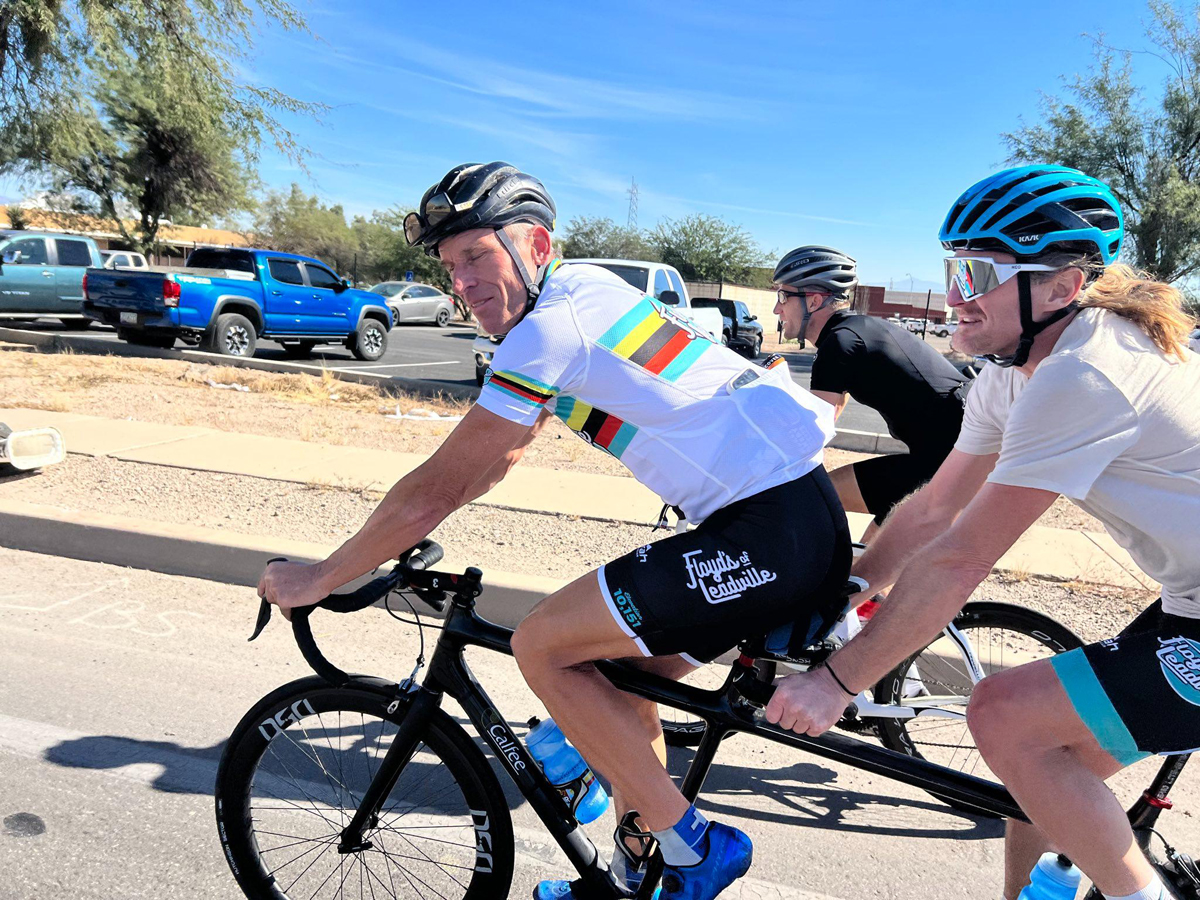
Talking about stress and guilt and such topics may seem for a very heavy conversation, but throughout the interview Landis comes across as someone who is enjoying life again. He’s animated during the call and appears excited about the new project. Things are gathering pace and a plan for the debut season is starting to form.
The team will make its racing debut at a race called Gravel and Whine in Temecula on January 29th. It will then have a training camp before taking on a solid programme of competition, including the Belgian Waffle Ride Quadruple Crown events, the Life Time Grand Prix Series, the Southeast Gravel Series, as well as 24 Hours in the Old Pueblo and the Borah Epic MTB and Gravel.
Some of those events may see Landis taking part. He’s riding a lot and, as photos show, he’s shed a lot of the weight he put on after the end of his career. He looks competitive but suggests he’ll just dip in and out of racing at times and won’t have any serious ambitions.
“I had a gravel bike for quite some time now, probably four or five years. I ride it just probably as much as I ride my road bike, just because it’s nice to be able to ride places where there are less cars. I never did any events up until till this year, but then I thought, ‘okay, I’ll participate in a couple.’”
He said that return to competition prompted some mixed feelings. “On one hand, I felt competitive, like ‘I should try real hard.’ But then I immediately realized that I’m old enough now to know that this is not safe [he laughs]. So I was kind of conflicted.
“It reminded me of the thrill of racing, but I guess in my 20s I just could overlook the fact that cycling could be dangerous, especially in race situations. And so I think I’ll leave that to the young people. I’ll do races, but I’ll let the guys doing the race part go ahead and I’ll do it at my own speed.”
Floyd’s of Leadville co-owner Dave Zabriskie, a multiple US TT champion, is provisionally signed up. He was due this month to pick out a number of events that most appealed to him, although Landis admits a little uncertainty about how things could work out.
"I will say, as a hedge, and as somebody who loves Dave, like a brother and his friend, that getting him to leave the house is always a bit of a chore,” he says, laughing. “He has capitalized on this Covid thing like nobody else. So I hope he is seen at bike races, but I would not hold my breath. He’s the Howard Hughes of cycling at this point.
“That’s what he wants to be. That’s not a judgement, that’s just who he is… Dave likes being with Dave [laughs].”
Last time around Landis’ period as a sponsor lasted just one year. He had hoped that Fraser’s setup would be able to secure the backing needed to continue but things didn’t work out that way.
This time, all going to plan, he intends the team to be a multi-season project. Sponsorship discussions have been angled around a three year time period, and could see the squad expand into other areas including cyclo-cross.
But it’s a question of taking things step by step. Covid is still an issue and the sport’s own business model brings with it some uncertainty.
“I’d like to keep it going,” Landis says.
“I think it would be fun to set up something that’s got some staying power. But, like always, we hedge that with [seeing] cycling’s hard to predict. Gravel’s kind of evolving as well. But, assuming we can make it work in the first year, this is a longer-term project.”
